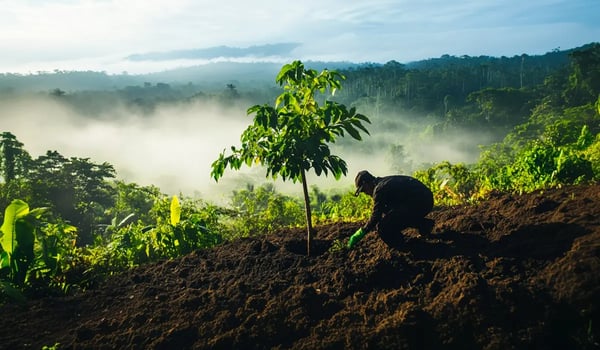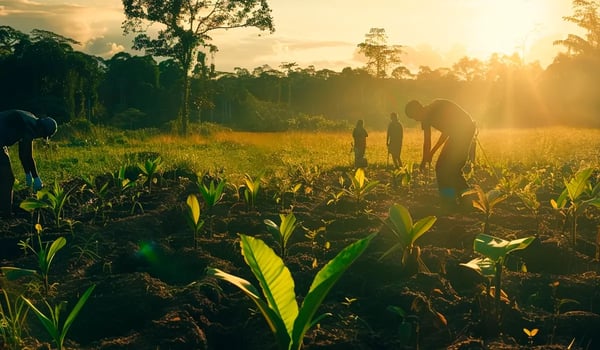A major environmental initiative is underway in Brazil, as Petrobras and the country’s National...
Dutch Government Commits $726M into Aramis CCS to Keep Carbon Plans Alive
The Netherlands has stepped in with a major investment to safeguard its flagship carbon capture and storage (CCS) project. The Dutch government will inject €639 million ($726 million) into Aramis, the country’s largest CCS initiative, after Shell and TotalEnergies decided to reduce their role in the project’s infrastructure.
 Panoramic view of Rotterdam's coastline along the North Sea. AI generated picture.
Panoramic view of Rotterdam's coastline along the North Sea. AI generated picture.
Originally, the two energy giants planned to co-finance a CO₂ pipeline network connecting industrial facilities to offshore storage sites beneath the North Sea. However, they have since shifted their attention to developing and operating the storage components, stepping away from the pipeline side entirely.
'This takes away a large part of the risk in the project', said Dutch Climate Minister Sophie Hermans, referring to the government’s decision to close the funding gap and maintain project momentum.
Paving the Way to 2030 Green Targets
Set to begin operations by 2030, Aramis is engineered to transport up to 22 million tonnes of CO₂ annually for permanent storage in depleted gas fields offshore. It’s a cornerstone in the Netherlands’ plan to cut emissions by 55% by the end of the decade, relative to 1990 levels. Despite progress—emissions were already down 37% by 2024—analysts warn the current trajectory falls short without major carbon capture infrastructure.
With Shell and TotalEnergies scaling back, state-owned Energie Beheer Nederland (EBN) and gas network operator Gasunie will now jointly build and manage the pipeline system. The energy majors will remain involved in storage services and offshore development.
A Broader CCS Ecosystem Takes Shape
Aramis forms part of a growing CCS ecosystem. In Rotterdam’s Maasvlakte, a new terminal—CO₂next—is being developed by Gasunie, Vopak, Shell, and TotalEnergies. It will allow industries not connected to the pipeline to transport liquid CO₂ in and out via ship. Meanwhile, upgrades to the Porthos compression station will support broader CCS efforts.
Beyond Aramis, the Dutch government is rolling out an €8 billion sustainability package, which includes support for renewables, electric mobility, and industrial decarbonisation.
€50 Million in New Funding for Carbon Removal Tech
In addition, the government will allocate €50 million ($57 million) under its 2026 nature bill to boost innovation in carbon removal. The funds will support technologies like direct air capture, biochar, and carbon mineralisation. In total, €105 million is expected to fund 75–80 projects aimed at advancing low-carbon solutions.
‘We make sure that we do not give too much subsidy. We carefully assess the investments based on the goals and criteria of the fund that are stated in the law,’ added Minister Hermans.
As traditional energy players reevaluate strategies, public support for CCS infrastructure is becoming more vital. Projects like Aramis not only reinforce the Netherlands’ green strategy but also bolster Europe’s leadership in emerging environmental technologies.






